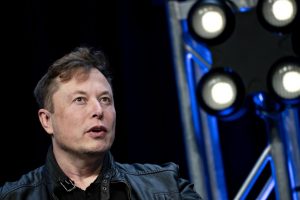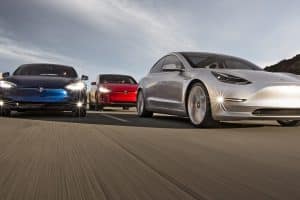Electric vehicles take longer to charge than gas cars take to be fueled. While there’s no denying this fact, EV drivers are using their charging hours elsewhere to make the most of the extra time — something we’ll all need to consider as the world moves away from internal combustion engines.
Charging EVs requires a paradigm shift compared to gas fueling, with activities such as shopping, going to restaurants or coffee shops, and sleeping being used to take up the extra time it takes to charge an EV, as Forbes acknowledges.
The average consumer may not realize some of the differences between EVs and gas cars, though many of them are hesitant to make the switch due to range anxiety, charging time, and a number of other uncertainties.
Forbes argues that re-framing thought around EV charging requires the user to see charging as a service, rather than as an energy commodity — as we do with gasoline. Compared to fueling a gas car, charging an EV depends more highly on where you are when charging, and what amenities or activities may be nearby and accessible.
For one, home charging offers users the ability to charge while they sleep at night, largely removing the need for fast chargers or spending extra time out and about.
If you don’t have home charging equipment installed, you’ll have to consider other options for charging and what kinds of amenities are available near the station(s) at which you’ll inevitably need to post up.
Tesla head Elon Musk said last year that the company planned to build diners at many of the automaker’s Supercharger stations — a good example of how one might be able to use the time while charging up. When venturing out, Tesla owners can keep their cars locked as they charge, and they can monitor charge levels remotely using the Tesla app.
Still, many EVs also offer added entertainment options for this very reason, including Tesla, which has made gaming an option from within the car, as another example of how one might spend their charging time.
While it’s time-consuming to charge an EV compared to filling up at the gas station, one of the benefits of charging EVs comparatively is that it represents a much lower cost for drivers. It currently costs around three times more to run a gas vehicle than an EV, according to consultants at ICF’s Climate Center, and as reported by Business Insider.
Much is still needed in the years to come to make chargers as popular as gas stations, especially as more and more consumers adopt EVs in their personal garages.
The Biden administration recently revealed a $5 billion plan, which would effectively place EV chargers every 50 miles across the U.S.
Increased availability of chargers and surrounding amenities will only help the average consumer to feel more comfortable making an electric purchase, and further spark the transition to zero-emission transportation solutions.
Originally posted on EVANNEX. By Zachary Visconti.





